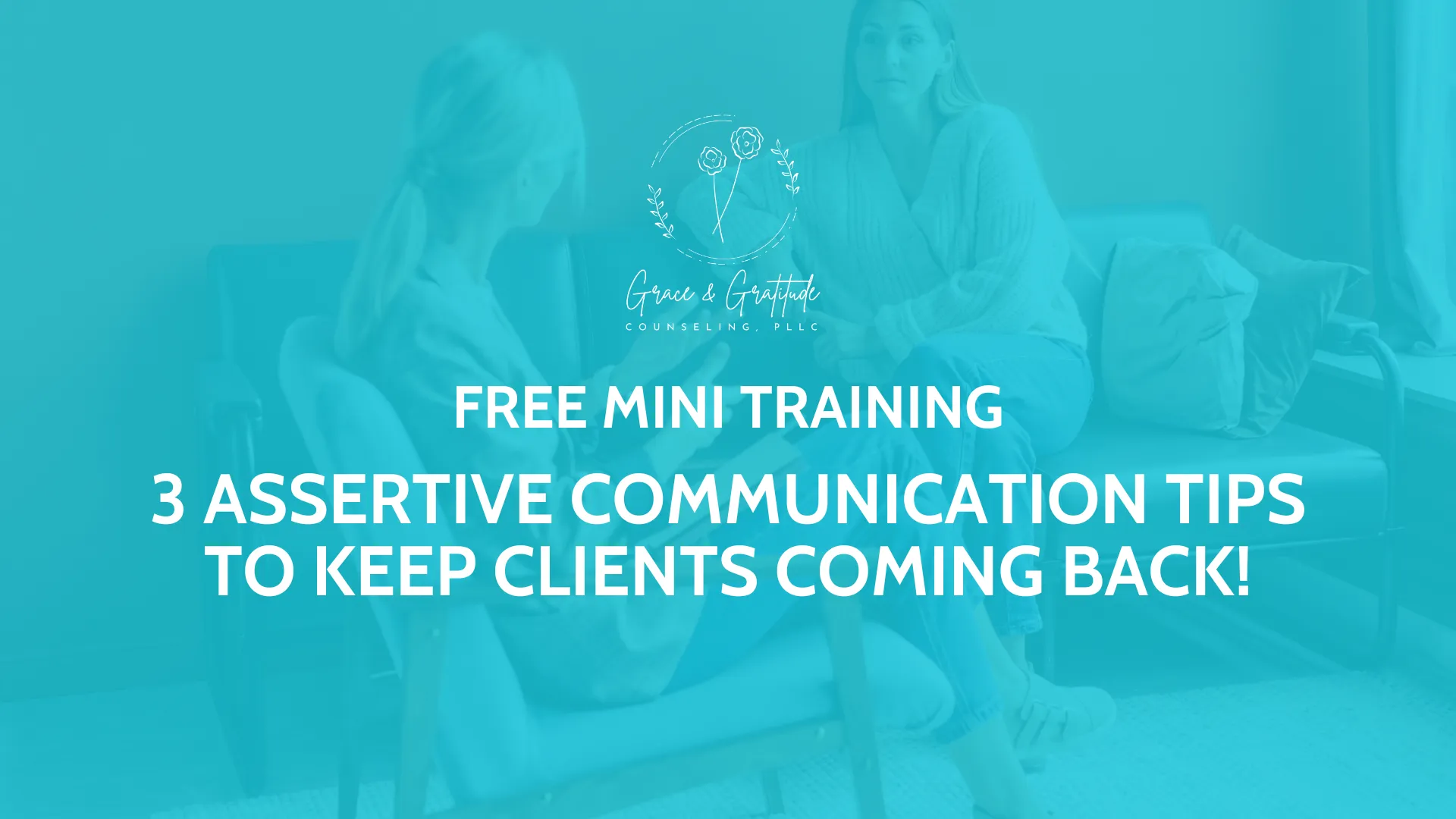First Time in Therapy? Here's What You Can Expect
Oct 13, 2025
If you’ve scheduled your first therapy session, whether for yourself or your teen, reaching out for support is a brave and meaningful step. As with starting anything new, you may have some questions, mixed feelings, or even some hesitation.
It’s completely normal to feel a little nervous before your first session. You might be wondering:
What’s going to happen?
What am I supposed to talk about?
Do I need to prepare or get ready in any special way?
Let’s walk through what that first session might look like—no clinical jargon, no pressure, just a gentle, grounded introduction to the process.
You Are Welcomed—Exactly as You Are
Whether you’re meeting in-person or virtually, your therapist’s role is to meet you where you are. There’s no test, no pressure to say the “right” thing, and no expectation that you have it all figured out. You don’t have to rehearse anything or show up polished. Just bring yourself.
Think of it more like a conversation with someone who’s genuinely interested in what life has been like for you, what you’ve been holding, and how they can support your healing.
Why the Paperwork Matters
Before your first session, you will fill out a few intake forms- things like what’s been feeling hard lately, a bit of your personal history, and what you’re hoping to get out of therapy.
Paperwork isn't anyone's favorite, but here’s the good news: your therapist will have carefully reviewed what you shared. It gives a starting point, so when they meet you, they are not going in cold. It helps them begin with care, context, and curiosity.
And don’t worry—nothing you wrote has to be perfectly worded or complete. These forms simply help the therapist hold space for you in a more grounded, informed way. Your therapist may ask gentle follow-up questions or invite you to expand on something you noted, only if and when you're ready.
Setting Expectations Together
During your first session, your therapist will spend some time getting to know what brings you in, what your hopes are, and what kind of support you’re looking for. You’ll also get a sense of how therapy works in general, but more importantly what it might look like for you specifically.
There’s no one-size-fits-all model. Therapy is most effective when it’s collaborative. You’re not being “worked on”—you’re working with someone who wants to support your growth with care, respect, and attunement.
You’re Invited to Ask Questions
Your first session is a space for curiosity, not just about what brought you in, but about the therapy process itself. Wondering how therapy works? Not sure what to expect in future sessions? Unsure if it’s okay to talk about something that feels really personal or complicated?
There’s no “right way” to do therapy, and no question is too small, too big, or too awkward. You're encouraged to ask anything that helps you feel more comfortable and informed—whether it’s about the process, your therapist’s approach, or something you've been carrying quietly for a long time.
This space is yours, and your voice matters here.
How Privacy Works in Therapy
Trust is essential in this work. In your first session, your therapist will take a few minutes to explain how confidentiality works- what stays between you and your therapist, and the very limited circumstances where your therapist is legally required to share information.
If you’re a parent bringing in your teen, your therapist will also talk about how they will work to balance your teen’s privacy while keeping you in the loop in a supportive, respectful way.
Life Happens
Things come up—kids get sick, work runs late, and sometimes plans change unexpectedly. At the first session, your therapist will go over the cancellation and missed session policy, including what to expect if a session needs to be rescheduled with less than 24 hours’ notice.
It’s not about guilt or penalties—it’s about setting clear, compassionate boundaries that honor your time, your therapist’s time, and the work you’re doing together.
If You're a Parent Bringing Your Teen
It can feel vulnerable both to bring your teen to therapy and to be a teen starting therapy. In most cases, the first session will be with the parent(s) only. This gives a chance to hear your concerns, understand the context, and begin building a foundation of support for your teen.
During this initial session, your therapist will also talk through how therapy works for teens, including balancing your teen privacy in the therapy space while also keeping you appropriately informed. You and the therapist will discuss what communication can look like throughout the process and how to work together to support your teen’s growth, both in and outside of sessions.
Therapists Are Real People Too
While your therapist is a trained professional, they’re also a real person who values authenticity. You can expect warmth, presence, and genuine compassion—not a cold or clinical vibe. When therapists show up as themselves, it helps create a space where you can feel safe being fully yourself, too.
You Don’t Need to Have It All Figured Out
There’s no need to show up with a perfect summary of your life or a list of things to work on. Just starting is enough. Your therapist will meet you where you are and help you sort through what’s coming up, one step at a time.
Final Thoughts
Your first session is just the beginning, but it’s an important one. It’s a space where you don’t have to have everything figured out. You get to show up exactly as you are and be met with care, not judgment.
Whatever you’re carrying, you’re not expected to sort through it all on your own. That first conversation is about starting to feel seen, heard, and supported.
SCHEDULE YOUR FREE 20-MINUTE CONSULTATION
Let's chat! You've been looking for a counselor who specializes in exactly the stuff you're going through, and we want to make sure you get what you need. So, we offer a free consultation in which you can ask questions and feel 100% comfortable before moving forward with a therapist that matches your needs.
Ready to get started?
Get the Latest GGC News to Your Inbox
Subscribe to our newsletter to receive news and updates about counseling groups, workshops, self-help strategies, and more!


